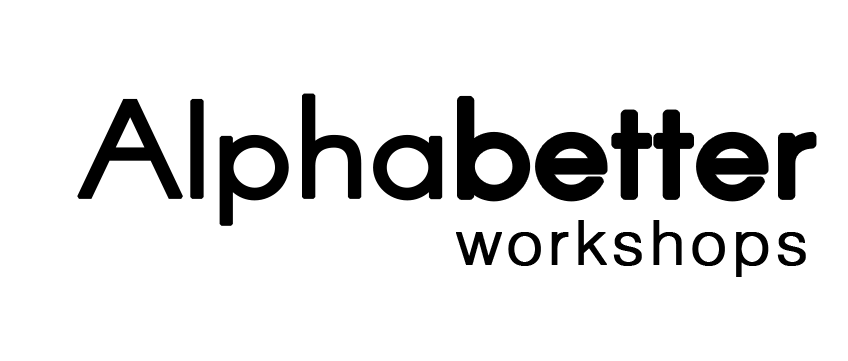
Alphabetter Schedule
Here's when you'll do your family assessments, hands-on activities, reflections, and live sessions during our 8 weeks together. Everything is designed to uncover strengths, build confidence, and provide tools that support lasting learning.
What we do.
We connect 100,000+ qualified prospects looking for financial advice, lending, protection, debt help and claims to advisors and brokers every year.

Eight weeks of
focus, confidence,
and connection.
8-Week Program Overview
Week 1: Family Hidden Genius Assessments (virtual)
You will start with a playful week of assessments, including Hidden Genius Literacy Assessment (HGLA),
Personal Family Constellation Profile Report and
A live virtual Assess-a-thon to help you understand and apply your results
Week 2: Alphabetter Bootcamp (in-person)
2-day weekend bootcamp
(Saturday & Sunday, 5 hours plus breaks) or
5 weekday 2-hour workshops
(Day/Time TBD)
An active, hands-on learning event that rewrites everyone's literacy and learning story
Weeks 3–8: Weekly one-hour Coaching
Weekly virtual or in-person sessions deepen new skills in self-regulation, learning, connection, and self-expression.
Daily entries (15 mins) in the Family Resilience Journal track growth and build lasting habits.
In just eight weeks, you’ll see lasting changes in focus, resilience, and self-expression — equipping your family with the skills to thrive together at home, in school, and in life.
Take the first step toward your family’s growth today

It's all about the numbers.
As a performance marketing agency driven by data, our comprehensive approach ensures promoting successful results, consistently aiming for a positive return on your advertising expenditure.
500+
Project Delivered
$60M+
In Partner Revenue
10,346
Positive Reviews
Your In-Person Options
The alphabet relearning element includes 10 in-person hours of hands-on activities.
For your family's convenience, you have two options for these workshops.
Your follow-up coaching sessions can be either in-person or virtual.
Weekend Workshops
Choose a combination of 2 successive Saturdays or Sundays, or a Saturday/Sunday weekend.
Set aside 5 hours for instruction each day plus breaks (60 mins total).
Weekday Workshops
Choose a series of five 2-hour sessions on weekdays, over a maximum of five weeks.
You may have more than one session per week (good idea!).
Weeks 3-8 Coaching
This in-person or virtual segment starts after alphabet relearning is achieved. We'll meet after school or on early evenings to match your family's schedule.
What We Do
Your proven customer acquisition system that increases conversion rates at every step of the customer journey so you can enjoy record breaking sales.
Effective Lead Generation
Strategically focused on high-intent leads generation tactics from Google, Bing, & YouTube.
Database Reactivation
Turn your old data into fresh appointments and sales, utilising our sales android that never rests.
Appointment Setting
Transform your contact rate and campaign profitability with our appointment setting sales android.

Choose your
start date
Set the pace now —
resilience and brilliance grow from day one.
Feel the lift of momentum — energy and optimism spark in the very first days.
See confidence awaken — your child’s smile and self-belief grow brighter each week.
Sense calm focus emerging — mornings flow smoother, homework feels lighter.
Cherish deeper connection — shared victories turn into lasting family harmony.
Trust the future you’re shaping — each step secures strengths no AI can replace.
Blog
Your proven customer acquisition system that increases conversion rates at every step of the customer journey so you can enjoy record breaking sales.

✨ Dysgraphia vs Dyslexia: Why Both Matter
“Dyslexia gets attention. Dysgraphia gets overlooked. But both change lives in profound ways.” --Diane Devenyi
Introduction
If you’ve spent time in education or business circles, you’ve probably heard of dyslexia. In fact, LinkedIn even lists “Dyslexic Thinking” as a skill — a recognition of the unique creativity, problem-solving, and big-picture strengths that can come with a dyslexic brain.
But what about dysgraphia?
Despite affecting millions of children and adults, dysgraphia rarely makes headlines, appears on skill lists, or gets the attention it deserves. Yet its impact on daily life, school performance, and confidence is just as profound — sometimes even more so.
Dyslexia: Bringing the Outside In
Dyslexia is typically described as difficulty processing written words — a challenge with bringing what’s on the outside (books, screens, text) inward for comprehension.
Trouble decoding printed text
Slow, effortful reading
Struggles with fluency and comprehension
Strengths often found in visual-spatial reasoning and creativity
This is why “dyslexic thinking” has been celebrated: dyslexic individuals often excel at seeing connections others miss.
Dysgraphia: Bringing the Inside Out
Dysgraphia, on the other hand, is almost the mirror opposite. It is:
“The inability to produce letters, words, or sentences that follow conventional rules for letter condition, placement or position, punctuation or grammar. This includes messy writing, poor spelling, trouble expressing thoughts, and attention issues when writing.”
In short, dysgraphia is about difficulty bringing what’s on the inside (thoughts, ideas, understanding) outward onto the page.
Signs can include:
Messy or inconsistent handwriting
Poor spelling, even with strong reading skills
Trouble expressing thoughts in writing, despite clear verbal expression
Attention struggles linked to the effort of writing itself

Why Dysgraphia Deserves Equal Attention
Dysgraphia doesn’t just affect schoolwork — it affects identity. A child who understands material but can’t show it on paper is often mislabeled as careless, lazy, or unfocused. Adults with dysgraphia may avoid jobs, tasks, or opportunities that require written communication.
And unlike dyslexia, dysgraphia rarely receives cultural recognition or is framed in strengths-based terms. There’s no LinkedIn skill for “Dysgraphic Thinking” — yet its effects ripple through confidence, career, and self-belief.
The Overlooked Impact
Students with dysgraphia may silently fail tests, not from lack of knowledge but from inability to express it.
Parents often feel frustrated, wondering why their child’s spoken brilliance doesn’t match their written work.
Educators may misinterpret dysgraphia as laziness, carelessness, or even defiance.
When we overlook dysgraphia, we overlook hidden genius.
Moving Forward: Literacy Solutions for Both
It’s time to give dysgraphia the same level of awareness, advocacy, and solutions that dyslexia has received. Both are real. Both matter. And both require us to expand our definition of literacy.
Through multi-sensory learning approaches, literacy assessments like the Hidden Genius Literacy Assessment, and a willingness to see differently, we can unlock potential that has been trapped by conventional definitions of reading and writing.
What's Project 111K?
It's a global call to action: By the end of 2026, let's bring the Hidden Genius Literacy Assessment to 111,000 children and adults— and change the way the world understands learning!
Curious About
Alphabetter for Your School?
Request an info kit or book a discovery call with us
It's never too late or too early
to re-learn the alphabet,
and the process boosts your brain power
-- no matter how old or young you are!
Follow Us
Toronto ON
Canada
+1 (647) 317-1727
© 2025 The Learning Force Inc.. All rights reserved.

Facebook
Instagram
X
LinkedIn
Youtube